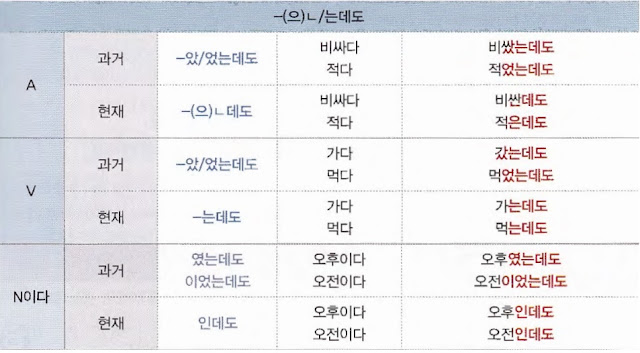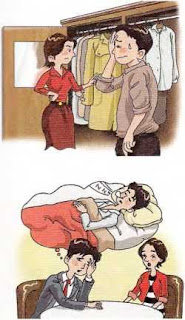가: 여보, 입을 옷이 하나도 없어서 몇 벌 사야겠어요.
Dear, I’m all out of clothes to wear, so I should buy some more.
나: 옷장에 옷이 이렇게 많은데도 또 옷을 산다고?
You’ve got all these clothes in the closet, but you want to buy more?
가: 얼굴이 피곤해 보이네요. 어제 잠을 못 잤어요?
You look tired. Were you not able to sleep last night?
나: 어제 푹 잤는데도 오늘 많이 피곤하네요.
Despite getting a good night’s sleep last night, I’m really tired today.
This expression is a combination of -(으)ㄴ/는데, which describes the situation under discussion, and 아/어도, which indicates concession or contrast. Thus, the expression is used to introduce a clause that indicates an opposite or an unexpected state of affairs when compared to the information given in the preceding clause.

• 제 친구는 월급이 많은데도 회사를 그만두고 싶어해요.
Despite getting a good salary, my friend wants to quit his job.
• 아침에 청소를 했는데도 집에 먼지가 많아요.
Although I cleaned my house this morning, there’s still a lot of dust.
• 주말인데도 백화점이 한가하네요.
Even though it’s the weekend, the department store isn’t very busy.
To further emphasize the contrast or unexpectedness of the situation indicated by -(으)ㄴ/는데도, the phrase 불구하고 can be added to form -(으)ㄴ/는데도 불구하고.
• 사랑하는데도 불구하고 헤어져야 했어요.
Even though they were in love, they had to part ways.
• 바쁘신데도 불구하고 와 주셔서 감사합니 다,
Thank you for coming despite being very busy.
01. -기는 하지만, -기는 -지만
02. -(으)ㄴ/는 반면에
03. -(으)ㄴ/는데도
>> Full of Intermediate grammar: Click here
